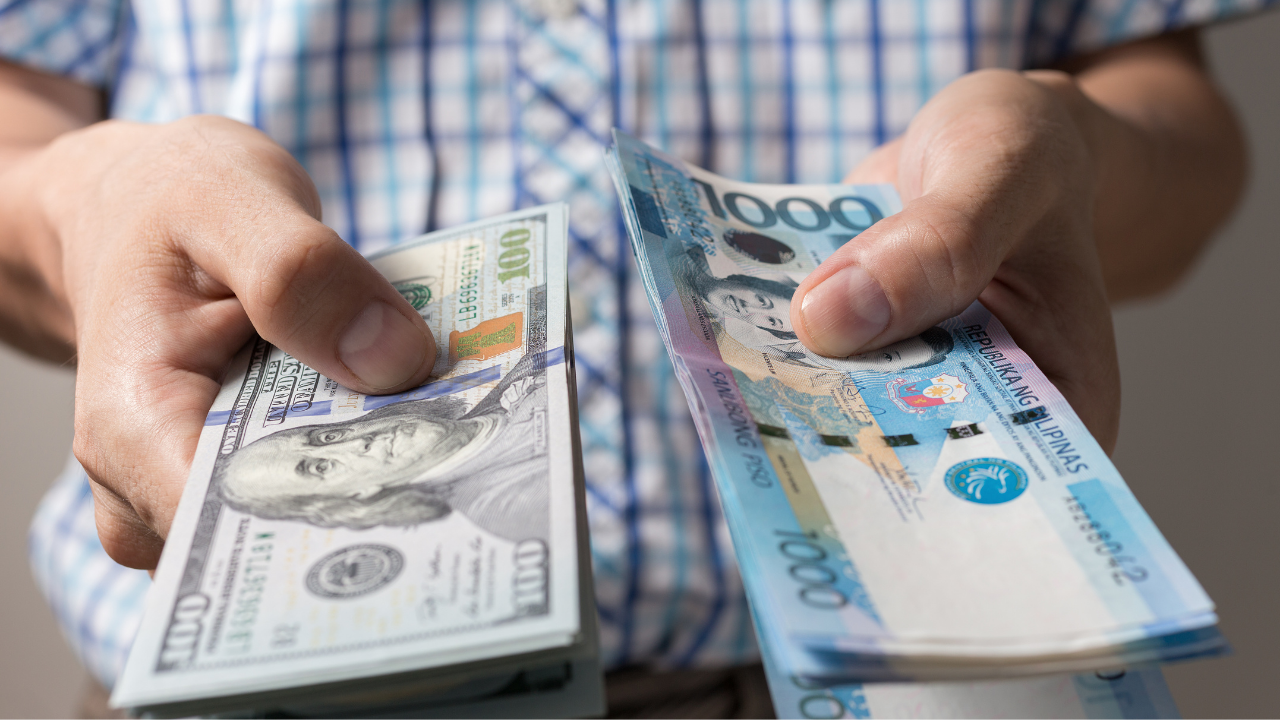The Philippine peso appreciated back to the 57-level on Monday to post its strongest finish in over two months, as recession worries in the United States and expectations of more aggressive rate cuts by the US Federal Reserve battered the greenback.
A resurgent currency would give the Bangko Sentral ng Pilipinas (BSP) more space to cut rates early. The local currency ended the first trading day of the week at 57.9 against the US dollar, 18 centavos stronger than its previous closing. Data showed this was the peso’s strongest finish since May 20, 2024—when the currency closed at the same level.
The peso’s worst-showing yesterday stood at 57.68. Trading was also heavy, with $1.76 billion switching hands.
Within target
Robert Dan Roces, chief economist at Security Bank, said the dollar continued to weaken after the weaker jobs report released last week stoked recession fears in the United States and fanned expectations of deeper rate cuts by the Fed.
READ: Peso slides to 58 to $1
The stronger peso, Roces said, would be “supportive of earlier rate cuts by the BSP.”
After sinking near the record-low 59 due to diverging rate outlook in the United States and dovish remarks from officials of BSP, the peso managed to reverse some of its losses and is now trading within the 56-58 assumption of the Marcos administration for this year.
Remolona earlier struck a more dovish tone, hinting that the central bank might cut the policy rate by a total of 50 basis points (bps) this year—with the first 25-bp reduction possibly in August and ahead of the Fed, which is now widely seen to start easing in September.
But there were some market watchers who pointed out that the BSP cannot ease ahead of the Fed. This is because the peso may come under pressure if local yields become less attractive to foreign investors seeking high returns while interest rates are still high elsewhere, especially in the United States, which is considered a safe haven by investors.
For Ruben Carlo Asuncion, chief economist at Union Bank of the Philippines, the appreciating peso would help build the case for a rate cut this month. INQ


